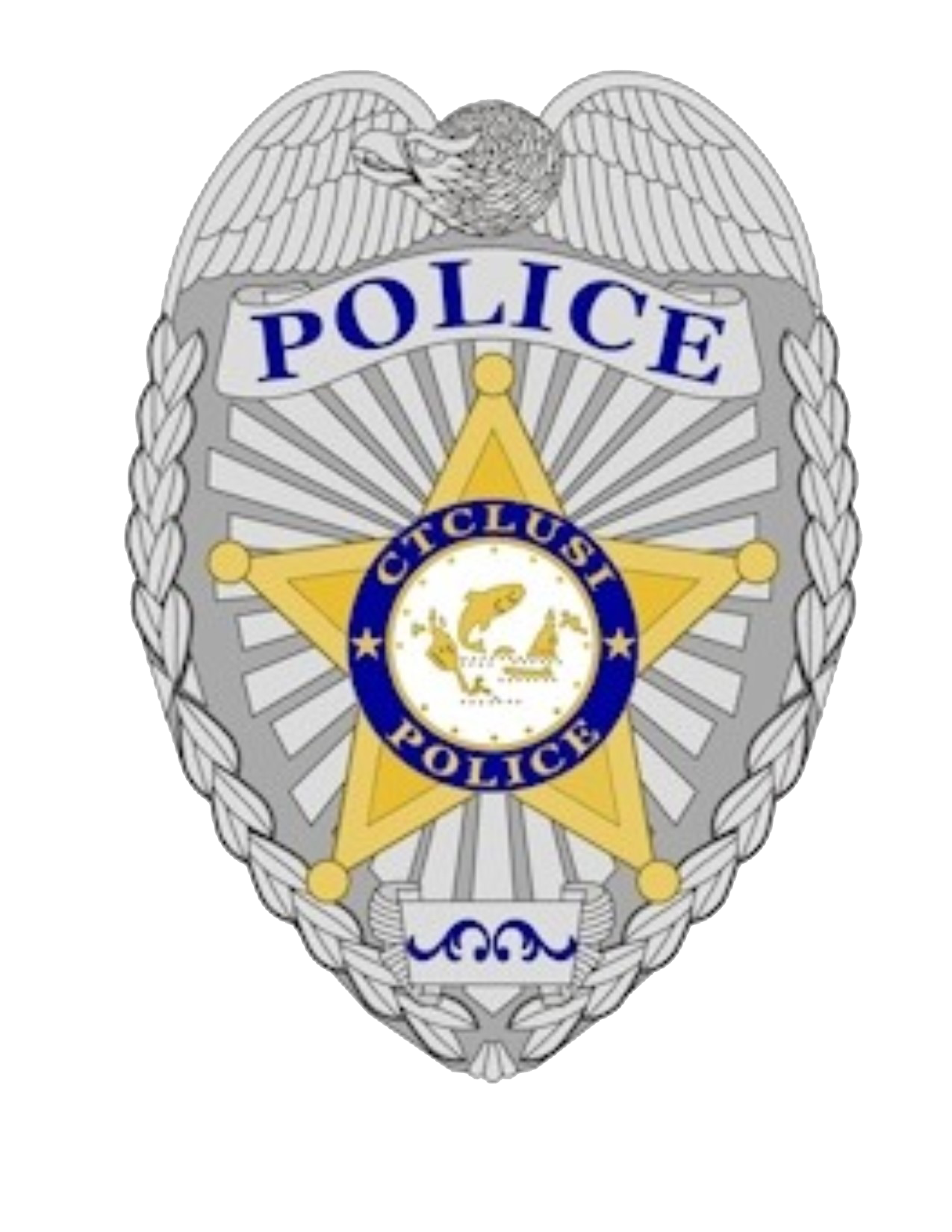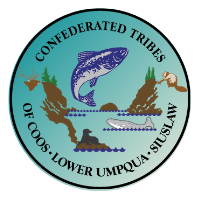The Confederated Tribes of Coos, Lower Umpqua and Siuslaw Indians Tribal Police Department is intended to be a full services police and public safety organization responsible for the delivery of specialized and necessary services to the Tribal communities and our Tribal business interests. We recognize the value of partnering and working cooperatively with key stakeholders, partners and our entire Tribal community in developing adequate levels of police service, being mindful of the need to restrict unnecessary duplication and to provide public safety services in the most efficient and effective manner possible.
Without a Tribal Police Department, there would be virtually no law enforcement on our Tribal lands. In addition to providing services at the Three Rivers Casino, and surrounding property, we also provide full police services in Coos County for our Tribal Housing, Tribal Administration, Tribal Hall and our Tribal members. As Tribal police officers we have access to our Tribal Court, and are sensitive to our Tribal culture and beliefs. With our own Police Department, our Tribes have the ability to help our people when they need or ask for assistance with law enforcement-related issues.
In case of an emergency, always dial 911
The Emergency Preparedness Program works with other Tribal Departments - particularly the Tribal Police Department - to develop Emergency Preparedness capacity. Emergency preparedness planning has included emphasizing the need for preparedness at the individual and household levels; newsletter articles; a Pre-Disaster Mitigation Plan developed in cooperation with the Federal Emergency Management Agency (FEMA); and an Emergency Communications Plan and a Comprehensive Emergency Response Plan (being developed in cooperation with the Oregon Emergency Management Agency.) In addition to preparedness at the individual and household levels, integration and interoperability with the emergency response networks within the Tribes' area is being emphasized during the development of emergency preparedness
Basic Emergency Preparedness
Create a Family Disaster Plan
Meet with your family.
- Discuss the types of disasters that could occur
- Explain how to prepare and respond
- Discuss what to do if advised to evacuate
- Discuss what to do with pets - Red Cross does not allow pets in their shelters
- Practice whatever you have discussed
Plan how your family will stay in contact if separated by a disaster.
- Pick two meeting places:
1. A location a safe distance from your home in case of fire 2. A place outside your neighborhood in case you cannot return home
- Choose an out of state friend or relative as a “check in contact” for everyone to call
Complete these steps.
- Post emergency numbers by every phone
- Show responsible family members how and when to shut off the water, gas and electricity at main switches
- Install a smoke detector on every level of your home. Test monthly and change the batteries at least twice a year
- Learn first aid and CPR
- Meet with your neighbors and plan how you could work together after a disaster
- Make plans for child care in case parents cannot get home
- Consider how you could help neighbors who have special needs, such as elderly or disabled persons
Individual/Family Disaster Supply Kits
WATER-A normally active person requires a minimum of 2 quarts of water per day. Hot environment or intensely stressful activities can double that amount. Nursing mothers, children and ill people will need more. Store at least 1 gallon of water per person per day in plastic bottles such as soft drink bottles. DO NOT use plastic milk cartons or glass containers that will break.
FOOD-Store at least a 3 day supply of non-perishable food per person. Food should require no refrigeration, preparation or cooking and little or no water. If you need to heat food, pack a can of sterno. Food items should be compact and lightweight. Suggestions include: *Ready to eat canned meat, fruits and vegetables, canned juices, milk and soup; staples like sugar, salt and pepper
- High energy foods; peanut butter, jelly, crackers, granola bars, trail mix
- Vitamins
- Food for infants, elderly persons, or those on special diets, if appropriate
- Comfort/stress food; cookies, hard candy, sweetened cereals, lollipops, instant coffee, tea bags
- Prepackaged foods such as MREs
- Non-electric can opener
- Keep a 72 hour emergency preparedness kit in your car
- Keep a 72 hour emergency preparedness kit in your home
- Consider keeping a kit near your desk at work
FIRST AID KIT-You should assemble a standard first aid kit for your home, for each individual 72 hour disaster preparedness kit and for each vehicle. These can be put together at home or purchased.
TOOLS and SUPPLIES-Flashlight and extra batteries, battery operated radio and extra batteries, shut off wrench for household gas and water, pliers, sanitation and personal hygiene supplies, small sewing kit, fire extinguisher, whistle, paper and pencil
CLOTHING and BEDDING-Include at least one complete change of clothing and footwear per person, sturdy shoes or work boots, rain gear/thermal underwear, blankets and/or sleeping bag, hat and gloves, sunglasses
PERSONAL VEHICLE-Gas tank full, tool box (which includes tow cable and jumper cables), extra oil and anti-freeze, emergency flares and distress flag/signal, flashlight and extra batteries, portable radio with extra batteries, traction devices, bag of sand and shovel, windshield scraper and brush, first aid kit with necessary prescriptions, blanket or sleeping bag, bottled water, canned fruit/nuts and non-electric can opener
SPECIAL ITEMS-Remember family members with special needs such as infants and elderly or disabled persons. Pack their kits accordingly. Include diapers and formula, or prescription medications. Keep important documents in a waterproof container. These documents might include insurance policies, contracts, deeds, stocks and bonds, wills, passports, social security cards, immunization records, bank account and credit card numbers, company contracts, an inventory of household goods, birth, marriage and death certificates, important telephone numbers, and copies of prescriptions. Have traveler’s checks, cash and change on hand. Extra medication, spare eyeglasses and anything else you think you might need.
This is your personal preparedness kit. Customize it to meet your individual needs. Don’t forget to plan for your pets, too!
Review kit contents every three to six months and update as needed. Rotate water, food, and medical supplies. Update important papers and emergency contact numbers.
For further information and for other information on special Emergency Preparedness topics, log onto these websites:
Red Cross website address: Red Cross
the FEMA website address FEMA

Contact Tribal Police
541-997-6011 (Main)
Contact-TPD@ctclusi.org
5647 Highway 126, Suite 100
Florence, Oregon 97439
Paula Williams
Administrative Specialist
541-997-6011(Main) pwilliams@ctclusi.org 5647 Hwy 126, Suite 100 Florence, Oregon 97439
Brian Dubray
Chief of Police
541-997-6011(Main) bdubray@ctclusi.org 5647 Hwy 126, Suite 100 Florence, Oregon 97439
